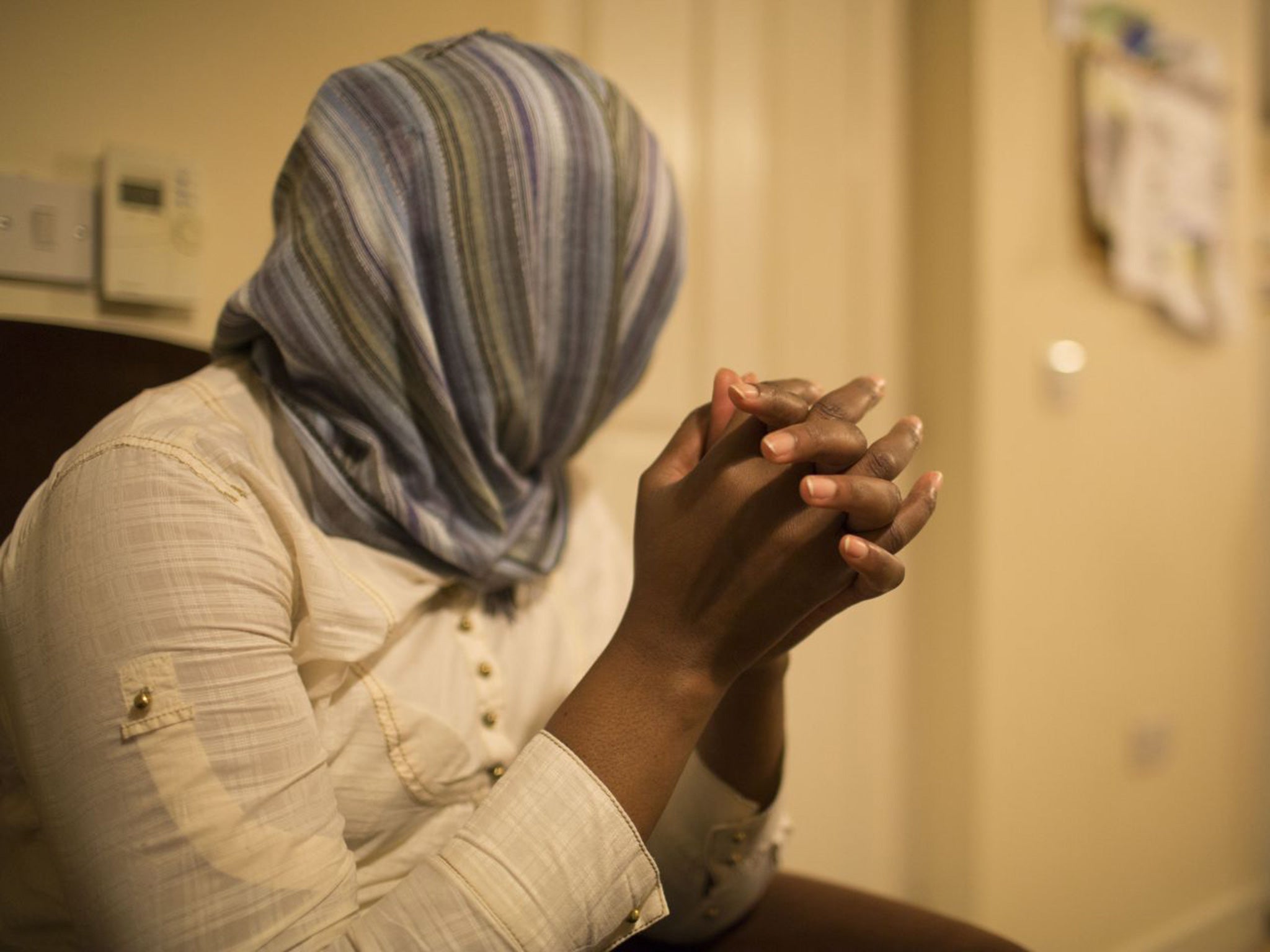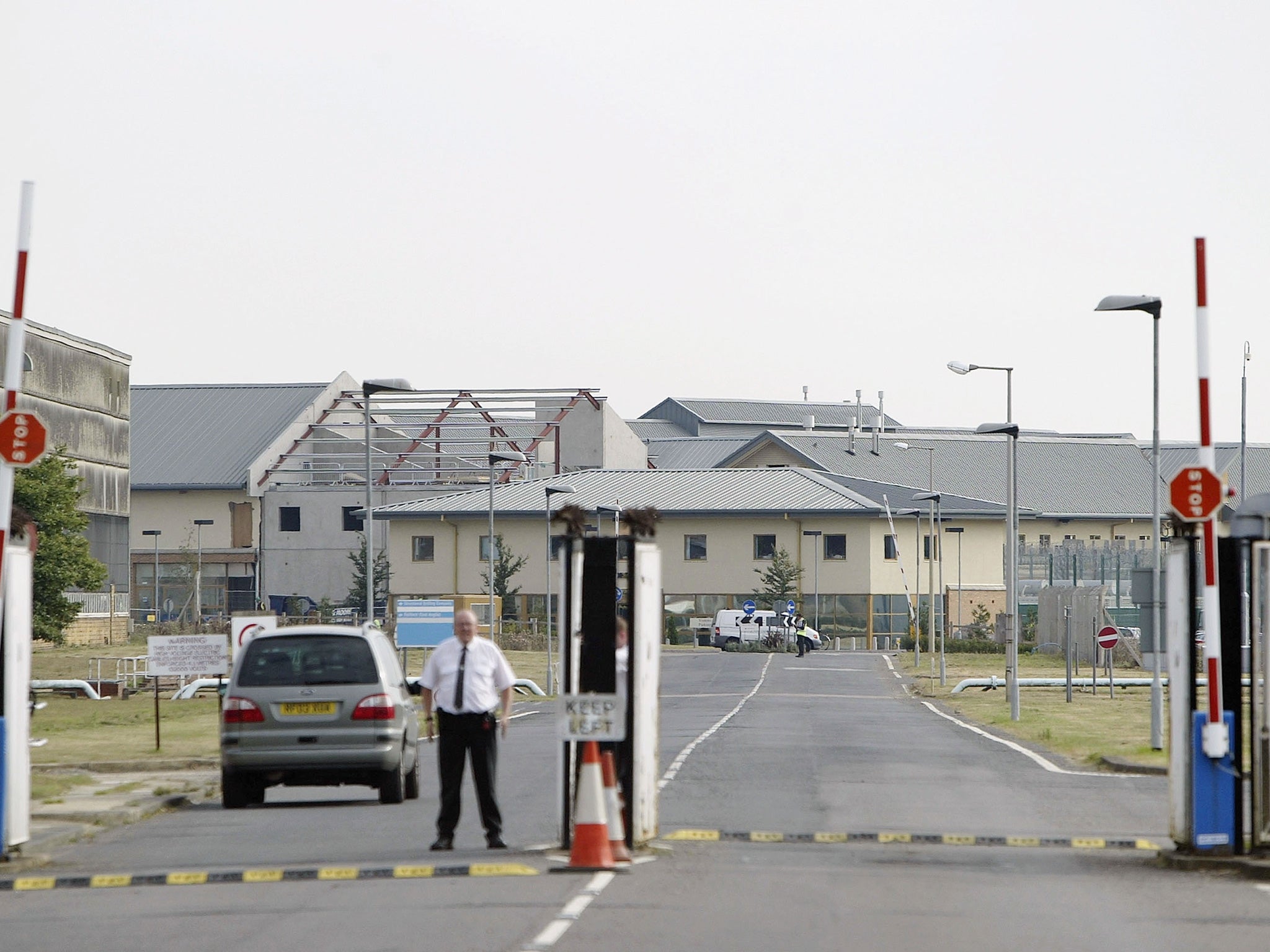Yarl’s Wood detention centre: Torture victim recalls terror of unlawful detention
After a High Court judge ruled a Sudanese refugee was wrongly detained at Yarl’s Wood, the woman tells Dean Kirby of her ordeal

A torture victim who was unlawfully detained after she sought safety in the UK has told how her arrest and confinement by British authorities caused her to relive every horrifying moment of the rape and violence she suffered in her homeland.
In a harrowing interview, the 42-year-old asylum seeker has described how being held at the notorious Yarl’s Wood detention centre gave her such vivid flashbacks of her brutal treatment that she believed she was back in the hands of rapist militiamen in Sudan.
As reported by The Independent on 9 October, a High Court judge in a case brought against the Home Secretary, Theresa May, branded the woman’s detention “truly disgraceful” and has ruled that she is entitled to damages.
The Independent has now seen documents showing that a doctor at the detention centre notified immigration officials of concerns that she may have been a victim of torture – sending a “body map” detailing 17 injuries including a gunshot wound and scars caused by knife wounds, and beatings with sticks and metal rods.
But officials wrote back saying her detention remained “appropriate, in these very exceptional circumstances”, and told her she would stay in detention for another month, when she was due to be removed from the country.
The woman, who cannot be identified for legal reasons, told The Independent: “I was completely horrified. Everything that had happened came back to me. It felt like what had happened in my homeland was happening again. I was right there, back in Sudan.

“I felt the pain of my family being killed as if it had just died. Every moment, I feared that I was about to be raped and tortured again. I was terrified.”
The woman was working in Khartoum in 2004 when Janjaweed militiamen killed her father and kidnapped her mother, and she returned to her home village in Darfur with her fiancé to be with her family.
He was killed in another attack and she was shot in the leg and raped. She fled to another village but was arrested by state security agents two years later and stabbed with a knife, beaten and raped. She was detained again in 2007 and repeatedly raped by a number of men.
The following year, she fled to England to study, but claimed asylum in the Republic of Ireland, believing she could not claim it in the UK because of her student visa.
After her claim was rejected, she made her way to England but the Home Office certified that she should be returned to Ireland.
She was detained in August 2013 but was realised after a doctor said she could be a victim of torture. It was during second period of detention from December 13 to January 2014 when the doctor’s warning was rejected. The Government’s own rule is that torture survivors generally should not be incarcerated.
The woman said: “I was frightened for my safety all the time that I was in detention. I felt that I was going to be raped and tortured. It ruined my mental health. This country is supposed to be a humanitarian country, but after everything I had been through, I shouldn’t have been treated like that.”
The judge in the case, Mr Justice Collins, quashed the certification, but said it was for the Home Secretary to have the final decision on whether the woman should be allowed to stay.
Natasha Walter, the founder of Women for Refugee Women, said: “This is the human cost of punitive immigration policies. Politicians talk about numbers, but they are often not aware of the impact in vulnerable and traumatised women in particular.”
The woman’s solicitor, Krisha Prathepan, said: “We tried very hard, even up to the day of the hearing, to settle this case as it should not have got to this stage. The Home Office refused to withdraw her certification despite accepting that the woman had suffered repeated rape and torture.”
Toufique Hossain, director of public law at the woman’s solicitors, Duncan Lewis, said: “It ought to be eye-opening for people in this country.
“The recent tragic images of refugees in Europe focus our minds on those who are abroad but this case highlights the treatment of refugees already here.”
The Home Office said: “We are disappointed with the court’s verdict. We are currently examining its implications and considering our options to appeal.”
Subscribe to Independent Premium to bookmark this article
Want to bookmark your favourite articles and stories to read or reference later? Start your Independent Premium subscription today.
